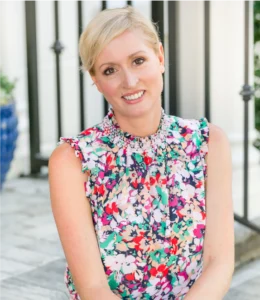This is not a quote from a relationship guru, a wellness influencer, or a meditation expert. It’s the evidence-based conclusion of the longest-running, well-researched, and well-funded study ever conducted on adult development and healthy aging.
Launched in 1938, the Harvard Study of Adult Development still continues to this day.
Researchers were floored to discover that across the board, close relationships are the strongest predictor of overall life satisfaction, and a better predictor of long, healthy, and happy lives than social class, wealth, fame, IQ, upbringing, or even genes.
Their main takeaway from the study is simple: Good relationships keep us happier and healthier.
This study as well as many others demonstrate that it’s not the quantity of our social relationships that make the difference, nor is it being in a committed intimate relationship. The magic ingredient is the quality of our close relationships and social connections.
“Connection,” writes Brené Brown in Atlas of the Heart, “is in our neurobiology.” It’s “the energy that exists between people when they feel seen, heard, and valued; when they can give and receive without judgment; and when they derive sustenance and strength from the relationship.”
My research with hundreds of highly stressed senior leaders found that healthy, supportive relationships are an essential element of their burnout immunity. And no surprise that other research found similar evidence—workers who feel supported and connected are more likely to feel energetic and motivated, have a positive attitude toward their job and feel deep engagement with their organization’s goals, and enjoy higher productivity and impact.
One of my favorite ways to think about how relationships help us achieve burnout immunity is through a recent Harvard Business Review article by Rob Cross, Karen Dillon, and Danna Greenberg. Following their Relational Sources of Resilience model, ask yourself a few questions to help identify the people you can lean on for support through challenging times:
- Who do you go to when you need to vent your negative emotions?
- Who do you go to when you need a good laugh?
- Who helps you keep things in perspective when you feel yourself overthinking things?
- Who helps you make sense of office politics and other people?
- Who boosts your confidence when you need to push back or advocate for yourself?
- Who helps you stay focused on your core values so you can maintain your boundaries?
If I were to venture a guess, I’d say that the answers to the questions above are the people who leave you feeling energetic, inspired, included, or optimistic.
And while you’re at it, don’t miss opportunities to be that person for someone else. Your name may just be the one that comes to mind for others who are asking themselves these questions.
Strong, supportive relationships just make everything better. I know I’ve been able to make it through some really tough situations at work because I had someone who believed in me, or who cared enough to offer support at just the right moment (yes – Michelle, Darin and Bria, I’m talking about you ).
With warm relationships that leave you feeling valued, respected, and secure, burnout doesn’t stand a chance!




